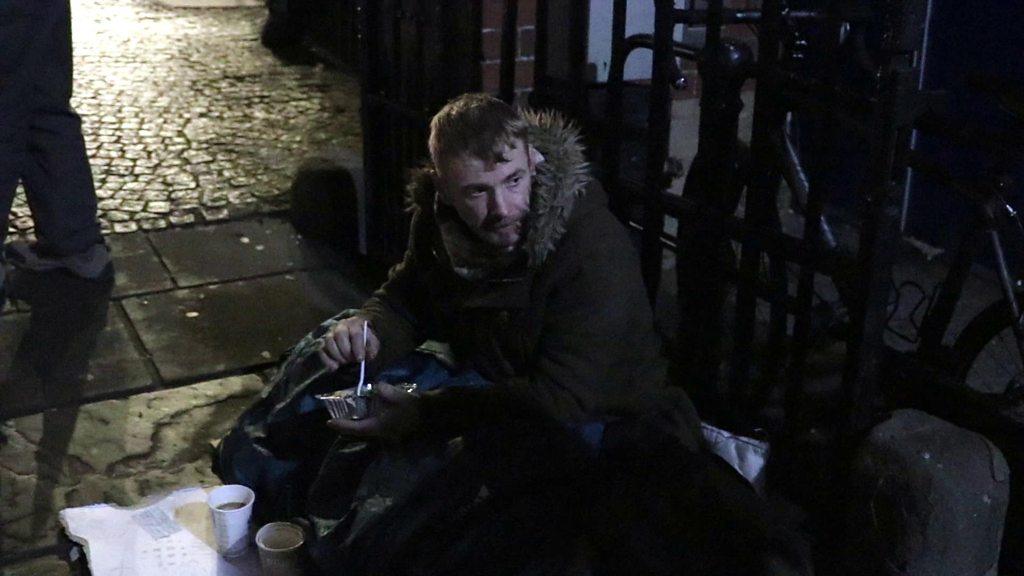Rough sleeping: Bristol City Council calls for more funding
- Published
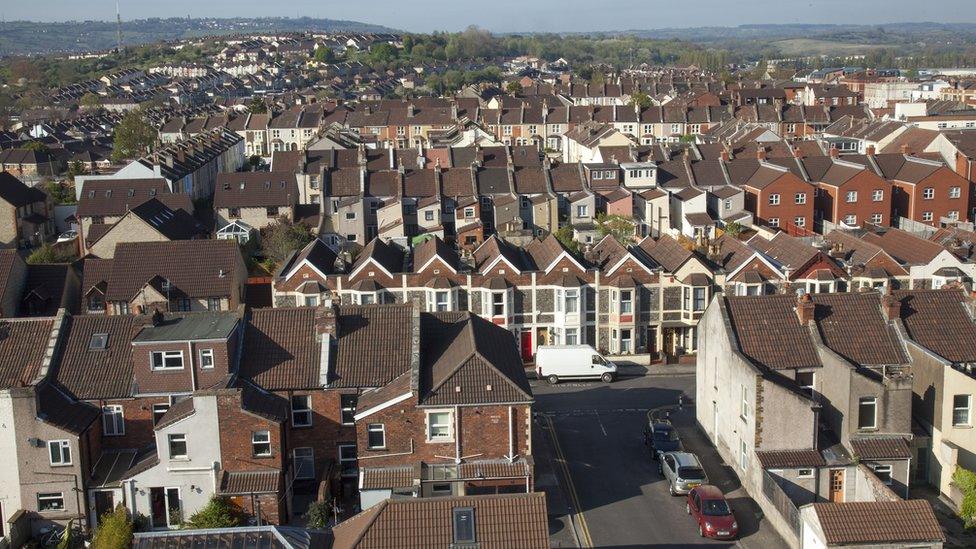
Homelessness in Bristol rose at the end of last year after falling during the pandemic
A city council has called for more government spending to help tackle homelessness and avoid progress made during the pandemic being lost.
The number of people sleeping rough in Bristol fell in 2020 thanks largely to government funding for accommodation.
But Bristol City Council said rising bills and lack of affordable housing was likely to see the problem worsen.
The government said it had given the council £3m for homelessness support in 2022.
The city recorded a 36 percent rise in homelessness between 2020 and 2021, although the figures fell again in the latest monthly count in January, from 68 people down to 26.
Those figures do not include people sleeping in buildings the council could not get access to, in vehicles or "sofa-surfing".
Bristol City Council said there were also more than 1,000 households in temporary accommodation in the city, adding that "unsustainable" number was growing each week.
Labour councillor Tom Renhard said funding was very "piecemeal".
"It comes in for a few months here or a year there, which makes it a lot more challenging to plan services or plan support."
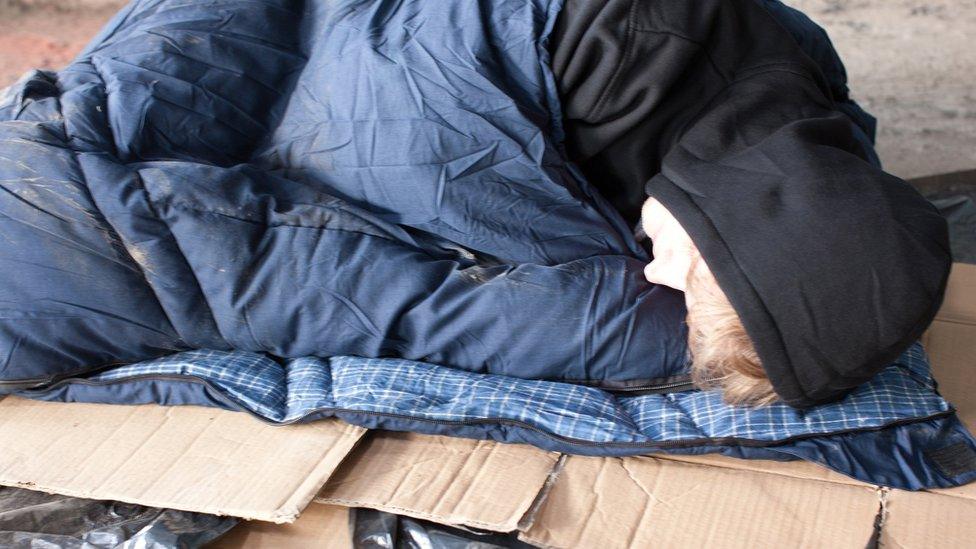
Like many councils Bristol put homeless people up in hotels during the pandemic
Andy Cook, who works for Bristol homeless charity St Mungo's, echoed calls for more funding.
He has lived rough on the streets himself, spending 10 years homeless in London.
"It got to the point where it was about daily survival," he said.
"It was horrible really, when I look back."
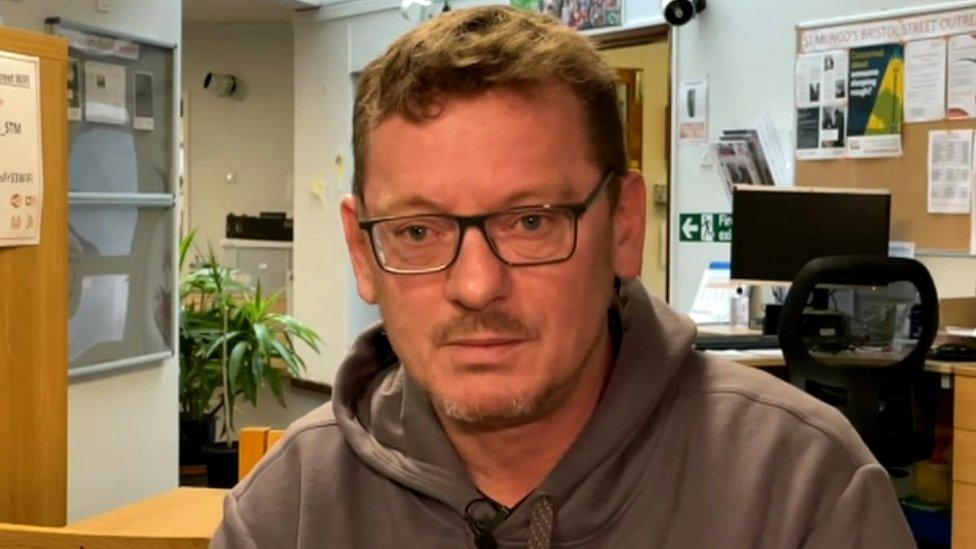
Former rough sleeper Andy Cook now works for a homeless charity
He said one of the major issues was finding places for people to live once they had been identified as needing support.
"There are not enough houses, there are not enough places to move people on to once we bring them away from the streets," said Mr Cook.
Angus McPherson, a trustee of Swindon homeless charity The Filling Station said it was important money was not only being spent on housing but also on tackling addiction issues.
"The 50 or so people we see every week, and the many, many more that we don't see, just can't cope with life as it is and need that support on a regular basis - and probably will for some years to come."
Cost to the taxpayer
David Ingersley, regional head for St Mungo's, said in the long run it was better to spend money on getting people back into society.
"When people are rough sleeping they are experiencing trauma and needing to use the emergency services," he said.
"That has an enormous cost to the public purse and so overall it is better to help people."
The government told the BBC that as a city Bristol had been given £3m this year to spend on services for the homeless and added that since 2010 more than 3,600 affordable homes had been delivered in the city.

Follow BBC West on Facebook, external, Twitter, external and Instagram, external. Send your story ideas to: bristol@bbc.co.uk , external
Related topics
- Published13 November 2020
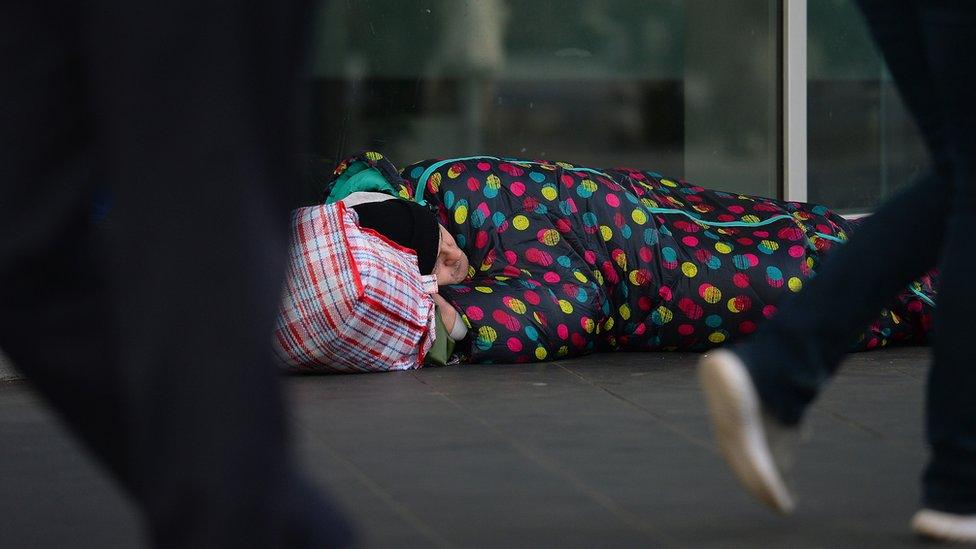
- Published20 November 2019
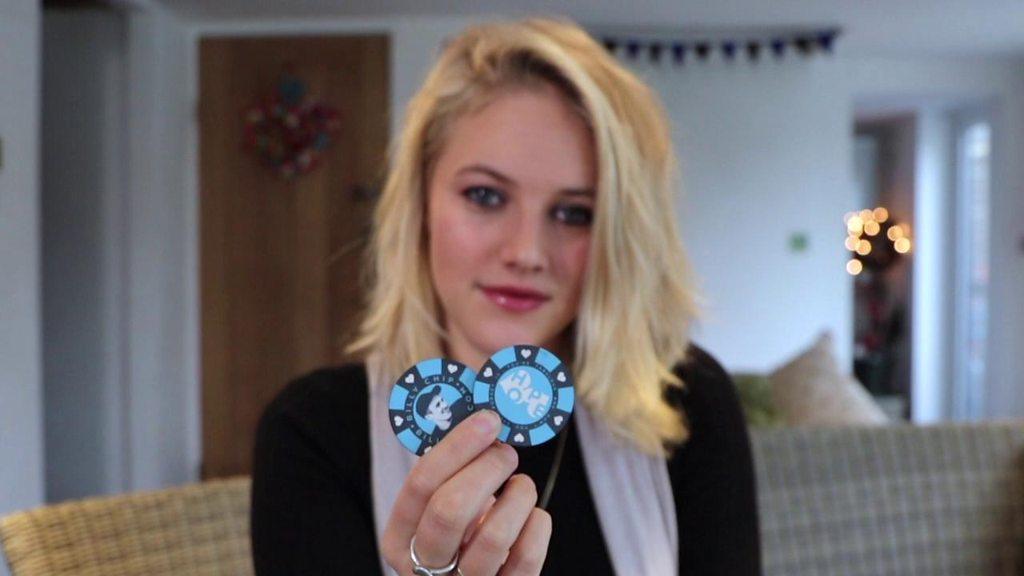
- Published19 January 2018
